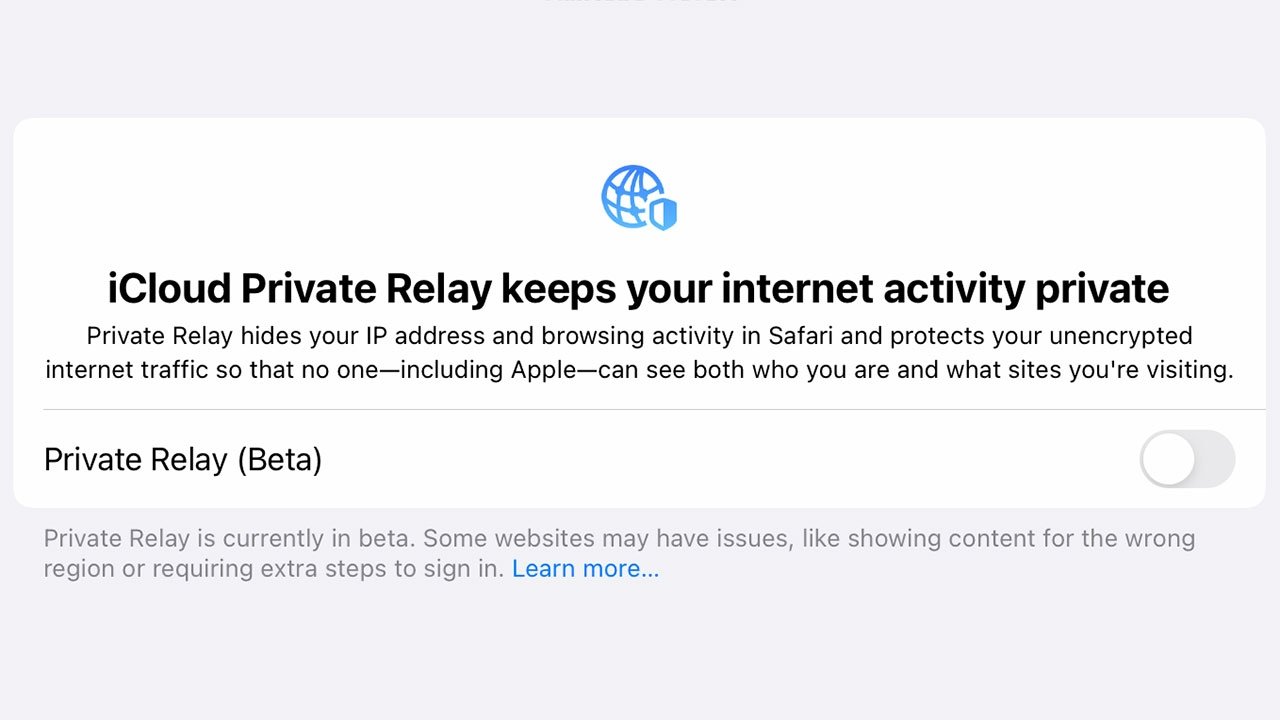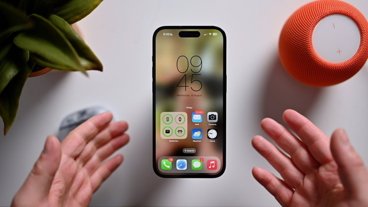Apple's iCloud Private Relay will ship as a public beta feature when iOS 15, iPadOS 15 and macOS Monterey debut this fall, with users required to manually activate the VPN-like tool before use.
Quietly announced in release notes accompanying the seventh iOS 15 beta issued on Wednesday, the change in status is not expected to impact Private Relay's operating capability, though the feature will be disabled by default.
Introduced at Apple's Worldwide Developers Conference in June as part of iCloud+, Apple's premium cloud storage service, Private Relay prevents third-party tracking of IP addresses, user location and other details by routing internet requests through two separate relays operated by two different entities. Internet connections configured to pass through Private Relay use anonymous IP addresses that map to a user's region but do not reveal their exact location or identity, Apple says.
The system is designed to add an extra layer of security to Safari web browsing, DNS resolution queries and insecure HTTP app traffic. Third-party web browsers, like Google's Chrome and Mozilla's Firefox, do not benefit from the feature.
Apple is relegating Private Relay to public beta status in order to "gather additional feedback and improve website compatibility," according to release notes issued today.
New information included in the iCloud settings menu notes "[s]ome websites may have issues" with Private Relay, including displaying content for the wrong region or "requiring extra steps to sign in." Apple maintains an informational webpage to help developers, website operators and other entities prepare for Private Relay, though some beta testers have encountered compatibility issues when browsing with the feature enabled.
When Apple's next-generation operating systems debut, users can activate Private Relay by navigating to iCloud options in system settings.
Today's development comes a week after Apple pushed the release of iOS 15, iPadOS 15 and macOS Monterey feature SharePlay to later this fall. The feature enables sharing of media like movies, music or a user's screen over FaceTime call.
Apple is expected to release iOS 15, iPadOS 15 and macOS Monterey in the coming weeks alongside new iPhone hardware.
 AppleInsider Staff
AppleInsider Staff







-m.jpg)






 Marko Zivkovic
Marko Zivkovic

 Malcolm Owen
Malcolm Owen

 Amber Neely
Amber Neely

 Wesley Hilliard
Wesley Hilliard
-xl-m.jpg)








4 Comments
As if Apple has any room to talk about anything at all relating to privacy any more.
Who in their right mind would trust a VPN from a company that we now know is willing to work directly with government agencies? Talk about not understanding your audience. Prevention of government surveillance is literally one of the primary reasons that people use a VPN. The type of person who doesn’t think surveillance is a big deal probably isn’t going to be the customer for a VPN… that customer would be one of the security minded people Apple just gave the middle finger to and called a member of the “screeching minority”.
First scanning your photos, now they want to scan your internet activity…
what the heck
”oh but this increases privacy”
And I’ve got an invisible bridge I’d like to sell you.
hey you need to let use scan your photos… children are getting hurt you see
hey just send all your internet traffic through our servers, you know, the ones that scan your photos… it’s more private you see
dont worry about that infosec meeting we just had with the Biden admin. It’s for your protection you see
This is not looking good or private or trustworthy. This is looking like a super infrastructure for the government to know everything about you, personal and private or otherwise
this stuff used to be in the movies or communist countries. Now it’s here.
For anyone wondering why this is being rolled out as a Beta:
"Here’s what Reddit user WhatTheHomePod wrote:
He adds that a workaround is to enable “WebRTC Sockets Proxying under Experimental WebKit Features. However, In-App Safari will still show the leaked address even when this is enabled.”
So Private Relay isn’t working as was expected yet. Websites you visit can identify you.